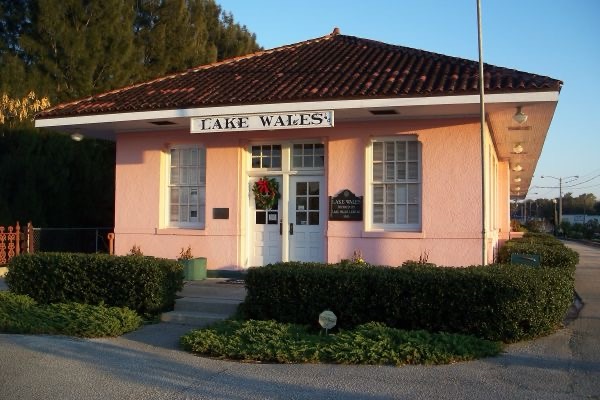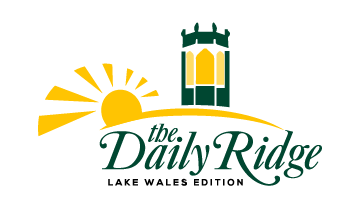
by James Coulter
How can the City of Lake Wales fund non-government organizations (NGOs) like the Lake Wales History Museum so that those organizations are incentivized to become more self-sufficient and not rely solely on the city for their funding? That was the question posed and discussed by city commissioners during their recent workshop.
At their workshop on Wed., Aug. 27, 2025, Lake Wales city commissioners discussed the funding formula for NGOs such as the Lake Wales Art Council and Lake Wales Main Street. Commissioner Keith Thompson prompted the discussion with a memo detailing a proposal for how the city should go about supporting and funding NGOs.
“Does the mission of the NGO align with our strategic plans, budgetary needs, and funding necessities?” he inquired.
In the memo, he classified NGOs into two categories: economic development and quality of life.
Economic development NGOs, as he defined them, provided economic development “that the City is either unable…unwilling…or cannot provide as efficiently as the NGO can.” Such NGOs included Lake Wales Main Street or the Economic Development Council.
Quality of Life NGOs, likewise, provide a service to the city to enhance its overall quality of life through “events and amenities to the citizens.” These NGOs included the Lake Wales History Museum and B Street Community Center.
As for determining how much funding the city should provide these NGOs, Thompson suggested two rubrics: the “public trust” expectation and the “percentage expectation.”
With the “public trust” expectation, Thompson insisted that money given to these NGOs equated to money spent. As such, he proposed auditing these NGOs within three years to ensure the money is being spent wisely and not simply sitting idle in a bank account.
“New contracts where the funding request will be more than 50 percent of the total revenue taken in by the organization within the last contract term will require a detailed financial statement of monies spent, as well as what monies are currently sitting in organizational bank accounts,” he wrote.
With the percentage expectation, Thompson proposed providing “seed money” through matching grants not to exceed 10 percent of the contract period revenue for quality of life NGOs and 50 percent of economic development NGOs.
“For example: if the organization raises $500,000 per year, the matching grant would be $50,000 from the city,” he wrote. “The expectation should be that…support from the city will be decreasing, rather than increasing.”
At the workshop, Thompson insisted that the goal for the city should be to fund these NGOs in such a way that they are incentivized to become more self-sufficient and not rely solely on the city for funding.
“Once you get past a certain threshold, you are not doing the NGOs any favor by funding 80 or 90 percent of their budget,” he said. “My concern is that we do not want to be 80 or 90 or 100 percent of the operating budget of these organizations, which is where we are with some of them. Some of these organizations have been around for a decade. So, I don’t know if this funding is ideal for them.”
Commissioner Carol Gillespie inquired how Thompson calculated the proposed percentages. Thompson replied that city staff had talked with other city managers. He claimed most of these cities aimed to reach a point where they would stop funding NGOs altogether.
Mayor Jack Hilligoss voiced caution in that approach. His concern was to consider better incentives for contracts with these NGOs, and that they introduce a funding formula that does not act like a “shock and awe campaign.”
“We do not need to be in the business of supervising the performance of NGOs,” he said. “It [the proposed funding formula] needs to be based on numbers, what is a good percentage for the city to make, and we need to set percentages and incentives and go from there.”
Thompson insisted that he was not making the proposal for next year’s budget, that changes would be gradual and administered in such a way as to provide NGOs enough time to evaluate their budgets.
“I am not proposing we do this for next year’s budget,” he said. “That would not be fair for them. They may need more time…We need to do what we think is best for the museum and the fiduciary responsibility for the city as commissioners. I am not suggesting we cut off money to any of these NGOs.”
In the proposed budget for next fiscal year, the following NGOs will receive the following funding:
• B Street Community Center – $133,600 ($43,000 recurring contract/$90,000 non-
contract building repairs)
• Lake Wales Economic Development Council – $125,000 recurring contract
• Lake Wales Museum Association – $200,000 recurring contract
• Lake Wales Arts Council – $50,000 non-contract
• Orange Blossom Revue – $25,000 non-contract
• Lake Wales Main Street – $100,000 recurring contract
• Woman’s Club – $100,000 non-contract building repairs
City commissioners will vote on the proposed budget at their next regular meeting scheduled for Tues. Sep. 2 at 6 PM at Lake Wales City Hall.


